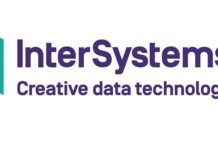Scientists at the University of Toronto have developed a chip that can detect the type and severity of cancer, a breakthrough that will hopefully enable doctors to treat the disease earlier. Based on nanowires, the chip can detect the signature biomarkers that indicate the presence of cancer at the cellular level. These biomolecules—genes that indicate aggressive or benign forms of the disease and differentiate subtypes of the cancer—are generally present only at low levels in biological samples.
The researchers said the new device can sense the biomarkers that indicate the presence of cancer at the cellular level, generally present only at low levels in biological samples. Analysis can be completed in 30 minutes, using a handheld device such as a Blackberry made by Research In Motion Ltd. Of Waterloo, Ontario, Canada.
Lead investigator Shana Kelley, a professor in the Leslie Dan Faculty of Pharmacy and the Faculty of Medicine, said in an interview, This could change the way we do screening, we could do a lot more screening in the future.
The team’s microchip platform has been tested on prostate cancer and head and neck cancer models. In addition, it could potentially be used to diagnose and assess other cancers and infectious diseases, such as HIV, MRSA, and H1N1 flu.
The chip is about the size of a person’s fingertip, she said. The chip, combined with the handheld device would replace the room of computers now needed to evaluate a sample of cancer biomarkers, Kelley said.
Kelley worked with University of Toronto engineering professor Ted Sargent and a team from Princess Margaret Hospital and Queen’s University in Kingston, Ontario.























